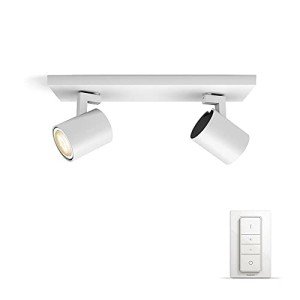The Next Big New Buy Industrial Lighting UK Industry
Buy Industrial Lighting in the UK: A Comprehensive Guide
In the ever-evolving world of industrial operations, adequate lighting is essential for safety, efficiency, and effectiveness. In the UK, businesses face distinct challenges that demand specialized lighting options customized for industrial environments. This short article supplies a thorough check out the considerations for buying industrial lighting, the types available, and some frequently asked questions to enhance the buying procedure.
Comprehending Industrial Lighting
Industrial lighting incorporates a vast array of fixtures, from high bays utilized in warehouses to explosion-proof lights for hazardous locations. Choosing the best lighting can enhance presence, reduce safety dangers, and even minimize energy costs.
Key Considerations for Industrial Lighting
When purchasing industrial lighting, numerous aspects require to be thought about:
- Type of Facility: Assess whether the lighting is for a factory, warehouse, or an outdoor area.
- Function: Determine whether the lighting is for basic illumination, task-oriented activities, or safety/security.
- Energy Efficiency: Opt for energy-efficient lights to decrease functional expenses.
- Regulatory Compliance: Ensure that the lighting meets UK security and quality standards.
- Durability: Industrial environments can be extreme; lighting items require to withstand conditions like moisture, dust, and vibrations.
- Setup Considerations: Understand the requirements for installing fixtures in high or hard-to-reach areas.
Types of Industrial Lighting
There are various kinds of industrial lighting fixtures available in the UK. Below are some of the most typical types:
Table 1: Types of Industrial Lighting
Type
Description
Best Use Cases
High Bay Lights
Utilized for big areas with high ceilings, such as warehouses.
Warehouses, factories
Low Bay Lights
For lower-ceiling environments where basic lighting is required.
Retail areas, producing
Flood Lights
Offers broad, even light; ideal for outdoor settings.
Parking lots, outdoor work spaces
Task Lights
Adjustable and movable; focus light on particular areas.
Assembly lines, assessment areas
LED Strip Lights
Versatile and energy-efficient.
Shelving, signs
Explosion-Proof Lights
Created for locations where flammable products are stored or used.
Chemical plants, oil refineries
Benefits of LED Industrial Lighting
LED technology has transformed industrial lighting, providing various advantages:
- Energy Efficiency: LEDs take in considerably less power compared to traditional incandescent or fluorescent lighting.
- Long Lifespan: LED bulbs can last up to 25,000 hours or more, dramatically reducing maintenance costs and downtime.
- Low Heat Emission: Unlike traditional lights, LEDs emit minimal heat, which can improve security, particularly in hot workplace.
- Flexibility: Available in numerous colors and strengths, making them ideal for diverse applications.
- Immediate Start-Up: LED fixtures provide complete brightness quickly, removing the flickering hold-up connected with some traditional lights.
Getting Industrial Lighting in the UK
When sourcing industrial lighting in the UK, companies have various alternatives. Establishing a clear purchasing strategy will enable purchasers to make educated decisions.
Steps for Purchasing Industrial Lighting
- Evaluation of Requirements: Evaluate the specific lighting needs based upon the type of industrial center and activities carried out.
- Budgeting: Determine the budget plan for acquiring not simply the fixtures however likewise installation and upkeep.
- Research Suppliers: Investigate trusted suppliers that focus on industrial lighting services.
- Evaluate Product Quality: Look for accreditations and reviews to make sure product durability and compliance.
- Think about Sustainability: Opt for suppliers that supply eco-friendly lighting services.
- Setup Support: Check if the provider provides setup services or assistance.
Where to Buy Industrial Lighting in the UK
Here's a list of suggested suppliers and merchants in the UK:
- LightHouse: Specializes in a large variety of industrial lighting options and uses both online and physical shopping.
- ElectricalDirect: An extensive source for all types of industrial lighting fixtures and parts.
- Amazon UK: Features a wide range of industrial lighting items ranging from budget alternatives to high-end services.
- B&Q:&A widely known home improvement store that likewise brings a choice of industrial-grade lighting.
- eBay: A marketplace where users can find brand-new and used industrial lighting items at reduced prices.
Frequently Asked Questions (FAQs)
1. What is the distinction in between high bay and low bay lights?
High bay lights are created for spaces with ceilings higher than 15 feet, supplying brilliant lighting for big locations. Low bay lights, on the other hand, appropriate for spaces with lower ceilings, generally ranging from 8 to 15 feet.
2. How do I know which kind of industrial lighting I require?
Assess your facility's height, layout, and the particular tasks being carried out. Engaging with a lighting specialist can also supply customized guidance based on your unique requirements.
3. Are LED lights worth the investment?
Yes, while LED lights might have a higher in advance expense, their energy efficiency, durability, and decreased maintenance needs generally cause substantial savings in time.
4. What regulatory standards should industrial lighting meet in the UK?
In the UK, industrial lighting needs to abide by British Standards (BS), which consist of guidelines on health, safety, and performance requirements for lighting systems.
5. Can I set up industrial lighting myself?
It depends on your know-how and local guidelines. While some services might go with DIY installations, it's frequently advisable to hire a qualified electrical contractor to make sure safety and compliance.
Purchasing industrial lighting in the UK needs thoughtful consideration of many elements, from the kind of center and lighting requires to budget and long-lasting performance. lightingandlamps can profit of enhanced safety and productivity by carefully examining product alternatives and engaging with trusted providers. As the demands of the industrial landscape progress, staying notified on lighting developments will ensure that companies remain competitive and certified.
